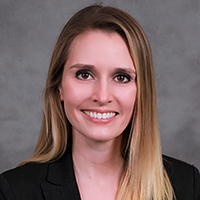Sinai Forum closes with thoughts on success
Lou Holtz, head coach of the University of Notre Dame’s Fighting Irish football team from 1986 to 1996, spoke about the “Game Plan for Success” at the Sinai Forum’s final program of the season in the DSSAC on Dec. 2.
Holtz’s speech on success related stories from his career to his message of achieving goals and maintaining a positive self-image.
His career spanned 34 years; he never coached a team for more than two seasons before taking it to a “bowl” game.
At the college level, since 1969, Holtz also coached the William and Mary Tribe, the North Carolina State Wolfpack, the Arkansas Razorbacks, the Minnesota Golden Gophers and the South Carolina Gamecocks. He coached the NFL’s New York Jets in 1976. He retired from coaching in 2004 and has been in the College Football Hall of Fame since 2008.
Holtz said personal success does not have to mean sacrificing professional success. He advised writing down both personal and professional goals to determine the hierarchy of the goals. He wrote down a list of professional goals and decided that they came in fourth place on his list, behind goals for his family, for his faith and for his finances.
He also wrote down goals for personal experiences, such as jumping from a plane, going white-water rafting and running in Pamplona, Spain, preferably in front of a slower person.
“I’ve done everything I mentioned except run with the bulls,” Holtz said.
After achieving success at Notre Dame, he thought that he did not want to coach anymore. But after taking two years off, Holtz said he realized he had only been tired of maintaining the team at the same level and was ready to start over with a new team.
“You’re either growing or you’re dying,” Holtz said.
Holtz advised people, when they get out of bed, to make a practice of asking themselves what is important to do that day. Holtz said that this will help them avoid destructive habits, because people must admit that a particular goal cannot be achieved if they give in to temptations.
“You’re always going to have problems. The whole thing is how we handle the problems,” Holtz said.
Holtz said that future success comes from within.
“Everything starts with self-image,” Holtz said.
He gave three rules for a good self-image: do right; do the best you can; and show others you care.
People should choose to do right even when they want to be bitter, he said. He had to make this choice when he was fired from being head coach at the University of Arkansas, despite a history of success and without being told the reason. Holtz said his wife convinced him not to be bitter, but to get revenge by succeeding.
“The most important choice you make every day is about the attitude you’re going to have,” he said.
Regarding the second rule, Holtz said that accomplishing goals might take a team effort. He said that all each person can do is commit to excellence and let all the little things add up.
“Great teams do little things the right way,” he said.
One season, his team was doing poorly, and he went into the locker room only to hear each player complaining about the others. They decided to stop worrying about abilities they did not have and concentrate on what they did have. They scored 18 points in the next nine minutes and won 80 percent of games after that.
“There comes a time when you stop making excuses,” he said. “I just think a commitment to excellence is critical.”
For the third rule, he recalled a season at South Carolina in which the team members were complaining about broken trust. He had all the players write down instances when trust was broken. They dug a hole and buried the papers in it and resolved to maintain each other’s trust.
Chancellor Thomas Keon said the address was inspirational and aligned with what he believes are the three parts of strong leadership: striving to improve the institution one is leading, giving clear directions of what needs to be done for improvement and loving what you are doing.
“That commitment to self-success is really what makes everything happen,” Keon said.
Dr. David Bankoff, son of Sinai Forum founders Milton and Sylvia Bankoff, worked for Notre Dame sports medicine for 30 years and was football team physician when Holtz was coach. He said he believed that trust and a commitment to excellence are vital for success.
“He was always very tough, very demanding; but he was very fair,” Bankoff said.


